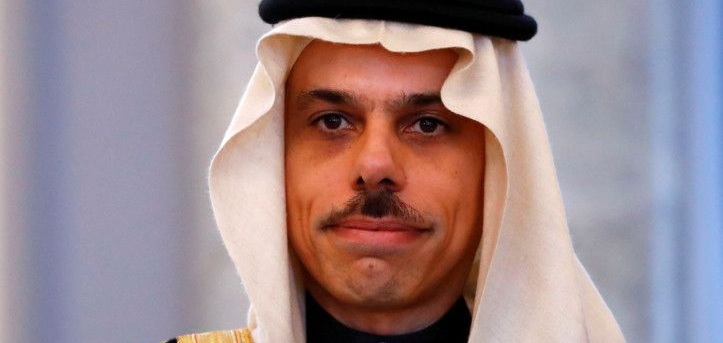AhlulBayt News Agency (ABNA): On the threshold of the seventh anniversary of the Saudi-led Arab coalition'aggression against Yemen and while the humanitarian crisis caused by the atrocious campaign is increasingly provoking the international community's sensitivity, pressures mount on Riyadh to end the war making the Saudis feel a need to take humanitarian and pro-peace gestures.
In recent days, Saudi Arabia announced a plan for a comprehensive ceasefire and an end to the war in Yemen— a plan that would see limited reopening of the capital Sana'a airport and halt of attacks on Hudaydah port south of the country.
The plan was strongly rejected by Sana’a which is held, along much of the northern Yemen, by Ansarullah Movement and the Yemeni army, despite the welcome of some parties, such as the US and the UN. The rejection made it clear that such initiative would not do much to solve the problem.
But why is the Saudi plan doomed to fail? And what would be the consequences of its failure on Yemen war developments?
Riyadh sham peace plan
Since the beginning of the Riyadh-headed invasion of Yemen in March 2015, the most important factor in the continuation of the crisis and the main obstacle to the advancement of the political process in Yemen have been the Saudi measures on the strength of Western military and diplomatic assistance. The Saudis have so far failed the international and regional initiatives for peace in the war-devastated Yemen by insisting on their bombings and maintaining the inhumane blockade under the excuse of restoring to power the resigned and fugitive President Abdrabbuh Mansour Hadi.
In addition to trying to escape the reality of their defeat in Yemen by continuing the war on Sana'a, the Saudis use the war as a cover for their alarming-level internal problems, especially in the economy and the unprecedented gaps and rifts in the royal family over succession. Thus, they have no serious intention to end the war in Yemen, a country that should now be called the Vietnam of the Saudis. Ongoing attacks on the people and maintaining the siege are tactics to destroy the economic foundations of Yemen, collectively punish the Yemenis, and bring the nascent Yemeni resistance movement to its knees, which is the main power actor in Sana'a today and in the near future in the whole Yemen and even across the Arabiam Peninsula.
The Saudi peace plan is only set to act as a propaganda show with the new US administration seeking to ease international pressure on Riyadh on the seventh anniversary of the invasion and to show a gesture of readiness for a political solution to the crisis. In other words, being aware that Ansarullah will not give in its winning cards of detterent attacks deep into the Saudi soil and progress in the strategic Ma'rib province and comply with such a ridiculous initiative, the Saudis and Americans are now on board a political and media propaganda to deceive the public opinion about who really hampers peace in Yemen.
A look at Biden administration’s addressing of Yemen case makes it clear that despite the deceptive comments about the necessity of end of the war, the new administration in Washington never put serious strains on its allies in Riyadh to stop the daily bloodshed and devastation in Yemen and lift the blockade. Apparent enough, the new ceasefire call is to save the Saudi camp in Ma'rib as the Yemeni fighters are taking long steps to seize the last stronghold of the Arab coalition forces in the north.
Inquiring the terms of the Saudi plan confirms this fact. In fact, the Saudis made it clear through this plan that they are not going to make any concessions to Sana’a to allow brewing of a serious negotiation process based on the realities of the battleground. One term of the plan says attacks on Hudaydah would stop. This is while the significant port was covered by a UN-brokered ceasefire deal, called Stockholm Agreement, since 2018 but the Saudis in recent weeks intensified their strikes on the port to relax pressure on Ma'rib front. But these raids cannot make any difference and with the UAE-backed southern mercenaries quiting support to Hadi forces, the latter would have no chance to secure an upper hand in Hudaydah.
Another term promises reopening, though limited, Sana'a airport. This suggestion is never attractive to Sana'a given the power of action of the army and popular committees on the battleground and their supremacy over the aggression forces and the ability to bring under fire the Saudi soil depth. In fact, the upper hand on the ground gives Sana'a leaders every reason to ask for full end of war and lifting of the sea, ground, and air siege.
The Saudi plan means war will continue and rays of hope for end of the siege and an improvement to the humanitarian conditions will fade away, but intensification of Ansarullah’s missile and drone strikes deep into Saudi Arabia along with Mansour Hadi government running into an impasse in Aden with the imminent fall of Ma'rib to the Ansarullah and its allies, Sana'a will have superiority in the developments and meanwhile the costs of war will be way higher for the Saudis.
/129

